Commercial Property Insurance
Commercial property insurance is a vital coverage for businesses of all sizes, safeguarding buildings, equipment, inventory, and other assets from financial loss due to unforeseen events. Whether you’re a small business owner or a large corporation, commercial property insurance can help you recover quickly from disasters like fires, theft, vandalism, and certain weather-related damages.
In this comprehensive guide, we’ll explore what commercial property insurance covers, why it’s essential, how premiums are determined, and tips to get the best coverage for your business needs.
What is Commercial Property Insurance?
Commercial property insurance is a type of insurance policy that helps protect your company’s physical assets. This includes not just the building where you conduct business, but also assets like furniture, computers, inventory, and even outdoor signage. The policy offers protection against loss or damage from risks such as fire, storms, and theft. In most cases, commercial property insurance is flexible, allowing you to tailor coverage to your specific needs.
Key Assets Covered by Commercial Property Insurance:
- Building and Structure: Coverage for physical structures owned or leased by the business.
- Equipment and Machinery: Protects equipment necessary for business operations, like computers, manufacturing machinery, and specialized tools.
- Furniture and Fixtures: Covers office furniture, displays, and other fixtures that enhance your business space.
- Inventory and Supplies: Protects items intended for sale or essential for service delivery.
- Outdoor Items: This may include outdoor signage, landscaping, fencing, and other outdoor structures.
- Valuable Records: Covers important documents, files, and records that are crucial to your business.
Why Do You Need Commercial Property Insurance?
Commercial property insurance is essential for business continuity, as it minimizes financial risk when disasters strike. Without this coverage, businesses may face substantial financial setbacks, potentially leading to costly downtime or even permanent closure.
Key reasons to have commercial property insurance include:
- Financial Protection Against Disasters: Fire, storms, vandalism, and theft can cause significant damage to property and assets. Insurance helps cover the cost of repairs or replacement, ensuring business continuity.
- Legal Requirements: Some states and industries require businesses to carry specific types of insurance, including property insurance. Compliance with these requirements is essential to maintain a valid business license.
- Lease Requirements: If you’re leasing commercial space, your landlord may require you to carry commercial property insurance to cover potential damages to their property.
- Employee Security: Protecting your business assets also indirectly supports your employees’ security by helping the company bounce back from a disaster quickly.
- Business Reputation: Recovering quickly from an unexpected event demonstrates reliability to clients and business partners, maintaining trust and minimizing reputational damage.
What Does Commercial Property Insurance Cover?
Commercial property insurance typically covers damages to your business property from common perils. However, it’s important to understand exactly what’s included and any exceptions or limitations. Here’s a breakdown of covered and non-covered events:
Commonly Covered Perils
- Fire and Smoke Damage: Fires can happen unexpectedly, causing severe damage to business premises. Fire coverage is standard in most property insurance policies.
- Theft and Vandalism: Protects against losses due to theft of business assets and damages caused by vandalism.
- Weather-Related Damage: Most policies cover damages from windstorms, hail, and lightning, though specifics vary by policy and geographic location.
- Water Damage (not flood): Some policies include water damage from broken pipes or sprinkler systems, though floods typically require separate insurance.
- Explosions: Coverage for explosion-related damages, whether accidental or due to unforeseen circumstances.
Commonly Excluded Perils
- Floods: Floods are generally not included in commercial property policies and require separate flood insurance.
- Earthquakes: Earthquake coverage is typically offered as a separate policy or endorsement.
- Employee Theft: Coverage often excludes losses from employee-related crimes unless you have a specific fidelity bond or crime policy.
- General Wear and Tear: Property insurance doesn’t cover damages from general wear, tear, or gradual deterioration over time.
Before purchasing a policy, thoroughly review the coverage details to understand what’s included and excluded. In high-risk areas, consider adding riders or endorsements to cover specific risks like floods or earthquakes.
How is Commercial Property Insurance Premium Determined?
The cost of commercial property insurance varies based on several factors, including the type of business, location, property value, and coverage limits. Here are key factors that insurers consider when determining premiums:
- Location: Properties in areas prone to natural disasters like hurricanes or wildfires tend to have higher premiums. Additionally, properties located in high-crime areas may have increased premiums due to theft risk.
- Building’s Age and Condition: Older buildings may have higher premiums due to increased risk of structural issues, outdated electrical systems, or other maintenance concerns.
- Type of Business: Certain industries, such as manufacturing or hospitality, may have higher premiums due to increased risk of accidents or damages.
- Replacement Cost vs. Actual Cash Value: Replacement cost policies, which cover the cost to replace property with new items, tend to be more expensive than actual cash value policies, which only cover the depreciated value.
- Fire Protection Measures: Properties with fire alarms, sprinkler systems, or close proximity to a fire station may qualify for lower premiums due to reduced risk.
- Deductible Amount: A higher deductible generally means a lower premium, as it reduces the insurer’s risk. However, choose a deductible that you can comfortably afford in case of a claim.
By understanding these factors, you can take steps to reduce your premium, such as installing safety measures, choosing a suitable coverage amount, and maintaining your property’s condition.
Types of Commercial Property Insurance Policies
When shopping for commercial property insurance, you’ll find several options designed to suit different business needs. Here are some common policy types:
- Basic Policy Form
This type covers common perils like fire, theft, and certain weather events. It’s suitable for small businesses looking for essential protection without extensive customization. - Broad Policy Form
This form includes everything in the basic policy, with additional coverage for specific events, such as water damage from broken pipes or sprinkler systems. - Special Policy Form
The most comprehensive option, this form covers all perils except those specifically excluded in the policy, offering peace of mind for businesses with complex insurance needs. - Business Owner’s Policy (BOP)
A BOP combines property and general liability insurance, offering comprehensive protection at a lower premium. It’s a popular choice for small and medium-sized businesses. - Inland Marine Insurance
If your business frequently transports property or equipment, inland marine insurance covers assets that are moved between locations. This is essential for businesses that rely on valuable tools, equipment, or mobile assets.
Tips for Getting the Best Commercial Property Insurance
Finding the best commercial property insurance requires a mix of research, planning, and risk assessment. Here are some tips to help you secure the right coverage at a competitive price:
- Assess Your Business’s Risks: Consider the unique risks your business faces, including location-based factors, industry-specific hazards, and property values.
- Shop Around for Quotes: Compare quotes from multiple insurers to get an idea of pricing and coverage options. Look beyond the premium to compare deductibles, limits, and exclusions.
- Bundle Policies: Many insurers offer discounts if you combine commercial property insurance with other types, like general liability or business interruption insurance.
- Review Policy Exclusions: Carefully read the fine print to ensure you understand what’s excluded. Purchase endorsements or add-ons to cover any additional risks.
- Regularly Update Your Coverage: As your business grows and acquires new assets, update your policy to reflect these changes and ensure adequate protection.
- Consider Replacement Cost Coverage: Although it’s more expensive, replacement cost coverage ensures you can fully replace damaged property, whereas actual cash value coverage considers depreciation.
Final Thoughts on Commercial Property Insurance
Commercial property insurance is an essential investment that protects your business’s assets, ensuring that you can recover from unexpected disasters with minimal financial strain. By understanding what’s covered, assessing your needs, and carefully comparing options, you can secure a policy that provides robust protection without overextending your budget.
In today’s uncertain environment, safeguarding your physical assets can mean the difference between business continuity and costly disruptions. Take the time to evaluate your options, and remember that the right insurance policy can offer peace of mind, knowing your business is protected against the unpredictable.
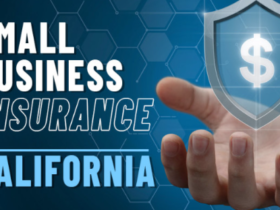


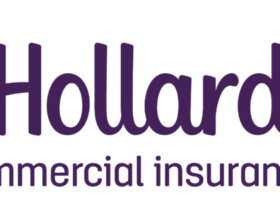


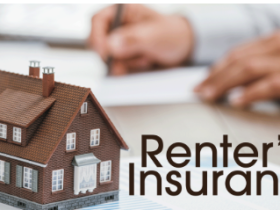
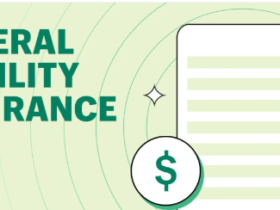
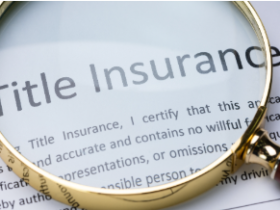
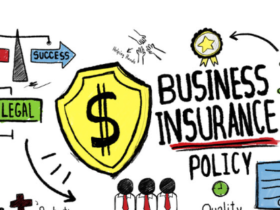
Leave a Reply
View Comments